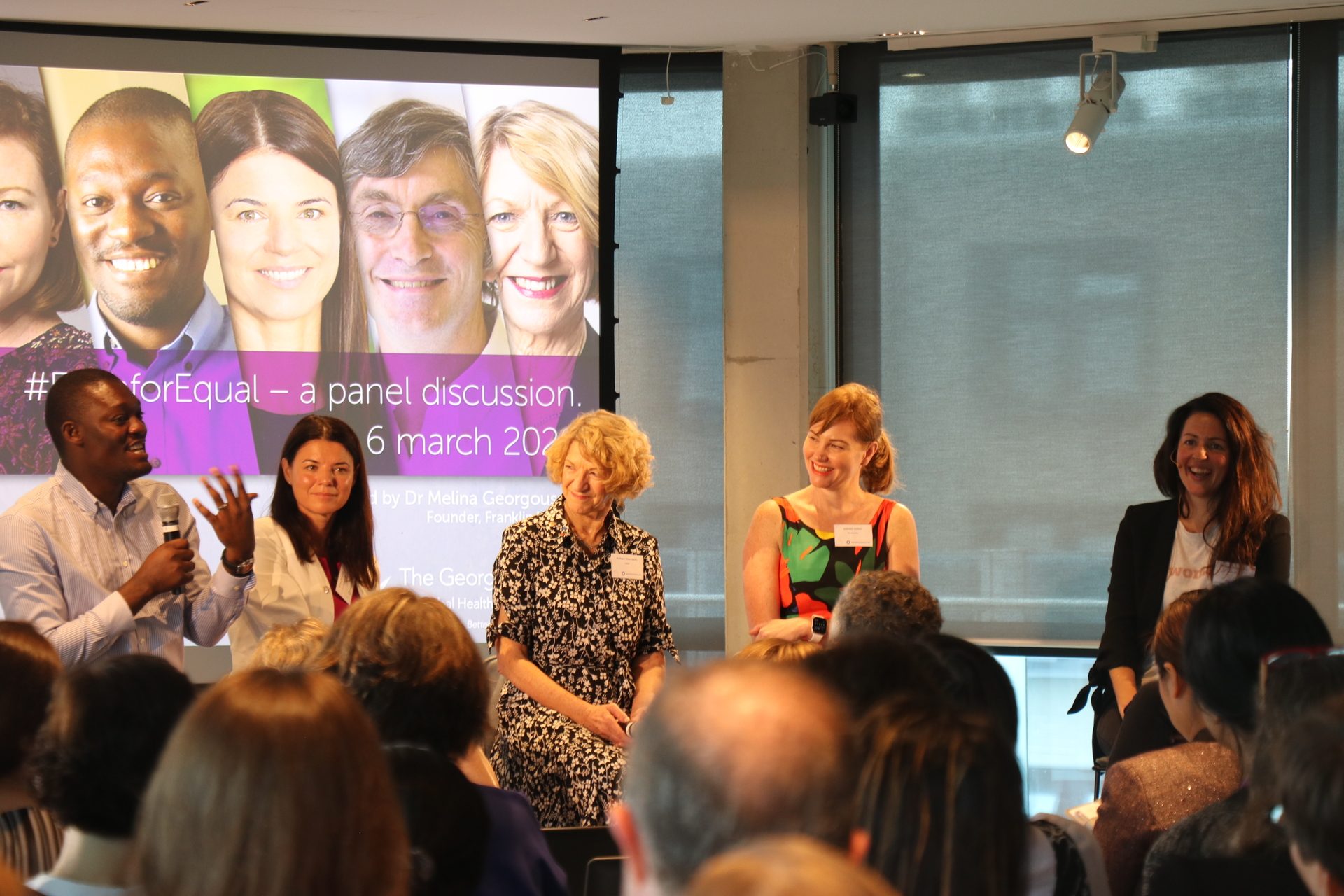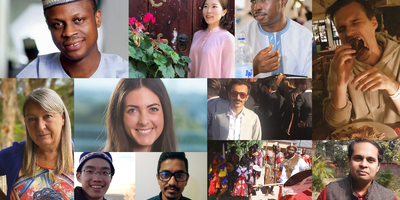
Each for Equal - Celebrating IWD 2020
On the 6th of March 2020, The George Institute for Global Health held a special breakfast with a panel of experts to celebrate International Women’s Day. The theme for this year, #EachforEqual, is all about enabling a more equal world.
The panel featured the diverse perspectives of Professor Eileen Baldry, Deputy Vice-Chancellor Equity, Diversity and Inclusion and Professor of Criminology at UNSW Sydney; Gabrielle Jackson, Associate News Editor, The Guardian Australia; Dr Fiona Martin MP, Liberal Member for Reid; and Dr Seye Abimbola, Office of the Chief Scientist, The George Institute for Global Health. The lively discussion was moderated by Dr Melina Georgousakis, Founder, Franklin Women.
Some key takeaways of the event were:
- Historically disadvantaged populations are the most affected by gender inequality. Prof Baldry said Aboriginal and Torres Strait Islander women in the criminal justice system are the most over represented group in the world due to intersections between colonialism and patriarchy. Dr Abimbola added that women from low and middle income countries are consistently the least represented group in global health governance.
- The media plays an important role in facilitating social discussion about gender equality and thereby influences system change. Gabrielle Jackson explained a clear example of this is the series of articles The Guardian ran on endometriosis which led to the NHMRC introducing guidelines on how doctors should treat endometriosis.
- There are layers of privilege that are woven into how organisations are structured and diverse voices are important. The gendered way that the health system is run can really affect the care that women receive.
- Collective action is of paramount importance. Dr Georgousakis emphasised that for progress to be made towards a gender equal world, it is not going to be because of any one person or any one group, but because of collective action.



